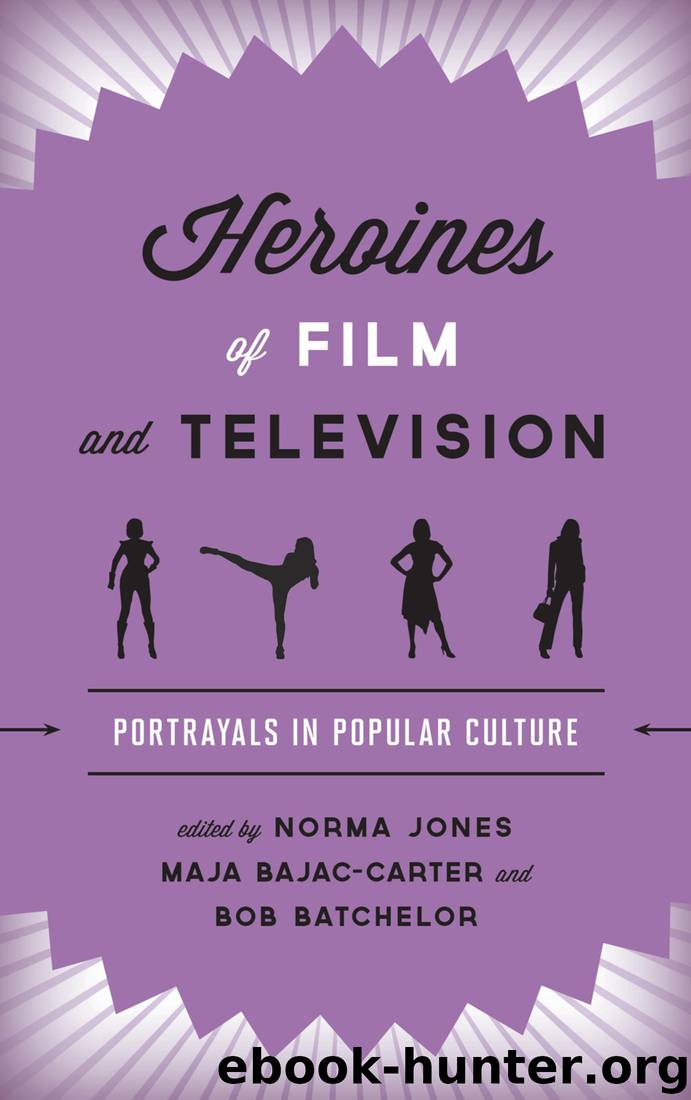Heroines of Film and Television by Norma Jones

Author:Norma Jones
Language: eng
Format: mobi, epub
Tags: undefined
Publisher: Rowman & Littlefield Publishers
Published: 2012-07-18T17:00:00+00:00
Part III
Diversity Concerns
Chapter 10
Her Story, Too
Catherine Bailey Kyle
Final Fantasy X, Revolutionary Girl Utena, and the Feminist Hero’s Journey
You say it’s your story, but it’s my story, too. —Yuna, Final Fantasy X
Trigger warning: Some of the content here deals with rape and other forms of violence against women.
NO GIRLS ALLOWED: WHY GENDER EQUALITY IN GEEK CULTURE MATTERS
In May 2012, Canadian American feminist media critic Anita Sarkeesian initiated a Kickstarter campaign intended to fund a series of short films analyzing the often-problematic treatment of female characters in video games.[1] The series was called “Tropes vs. Women in Video Games.” Supporters rallied behind Sarkeesian’s cause, raising her desired goal of $6,000 in under twenty-four hours. By June 30, the project had generated an astounding $158,922 from 6,968 donors, with which Sarkeesian plans to create a set of at least twelve ad-free videos and a classroom curriculum as of this writing.[2]
However, this feat was not achieved without significant backlash. In a TEDxWomen talk, Sarkeesian describes the “cyber mob” that resorted to all manner of vitriolic tactics to shame and silence her, including hacking her social media accounts, vandalizing her Wikipedia page, e-mailing her images of her likeness being sexually assaulted, and even creating a digital “game” where players could “beat the bitch up,” depicting an image of the critic’s face that became increasingly bloodied with each click of the mouse.[3] The genesis of the attacks? As one antagonist snarled in a Tweet directed at Sarkeesian, “I’ll rape you and put your head on a stick if you ever touch my video games.”[4]
The problem of misogyny in geek culture—loosely defined here as the social enjoyment of science fiction, fantasy, and/or action-adventure narratives as they appear in literature, film, television, video games, and other media—is widespread and rampant. The online world is rife with sexism, but so too are conventions and other gatherings. One example that garnered media attention was cosplayer Mandy Caruso’s experience at New York Comic-Con in 2012 when an interviewer asked her to “spank [him]” and reveal her cup size.[5] Sarkeesian accurately observes that much of geek culture is defined by a sort of “boys’ club” mentality,[6] one that seeks to resist alterations to the status quo by creating a toxic environment for females who would dare to participate. Patriarchal attitudes still hold sway over many areas of life, but what, specifically, is at the root of this intense hostility among geeks, a group that has long faced second-class treatment itself?
Patriarchy is a many-headed hydra, so it may be impossible to pin down a single “right” answer. However, one element that undoubtedly contributes to the boys’ club mentality Sarkeesian speaks of is the repeated reliance of sci-fi, fantasy, and action-adventure plots on narrative formulas that glorify men and objectify, marginalize, and disempower women. In the first installment of her “Tropes vs. Women in Video Games” series, Sarkeesian points out that the “damsel in distress” cliché frequently seen in games has been continually implemented in storytelling since ancient Greece, citing the myth of Perseus and Andromeda as one well-known example.
Download
Heroines of Film and Television by Norma Jones.epub
This site does not store any files on its server. We only index and link to content provided by other sites. Please contact the content providers to delete copyright contents if any and email us, we'll remove relevant links or contents immediately.
| Anthropology | Archaeology |
| Philosophy | Politics & Government |
| Social Sciences | Sociology |
| Women's Studies |
The Rules Do Not Apply by Ariel Levy(4969)
On the Front Line with the Women Who Fight Back by Stacey Dooley(4873)
The Lonely City by Olivia Laing(4802)
Bluets by Maggie Nelson(4557)
The Confidence Code by Katty Kay(4261)
Three Women by Lisa Taddeo(3434)
Not a Diet Book by James Smith(3429)
Inferior by Angela Saini(3316)
Confessions of a Video Vixen by Karrine Steffans(3309)
A Woman Makes a Plan by Maye Musk(3254)
Pledged by Alexandra Robbins(3179)
Wild Words from Wild Women by Stephens Autumn(3153)
Nice Girls Don't Get the Corner Office by Lois P. Frankel(3044)
Brave by Rose McGowan(2825)
Women & Power by Mary Beard(2767)
Why I Am Not a Feminist by Jessa Crispin(2760)
The Girl in the Spider's Web: A Lisbeth Salander novel, continuing Stieg Larsson's Millennium Series by Lagercrantz David(2723)
The Clitoral Truth: The Secret World at Your Fingertips by Rebecca Chalker(2720)
I Who Have Never Known Men by Jacqueline Harpman(2670)
